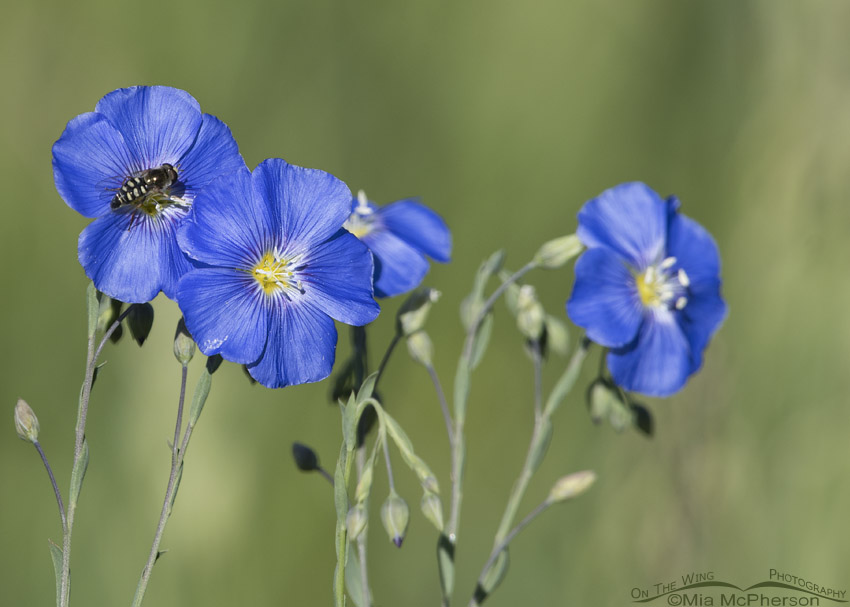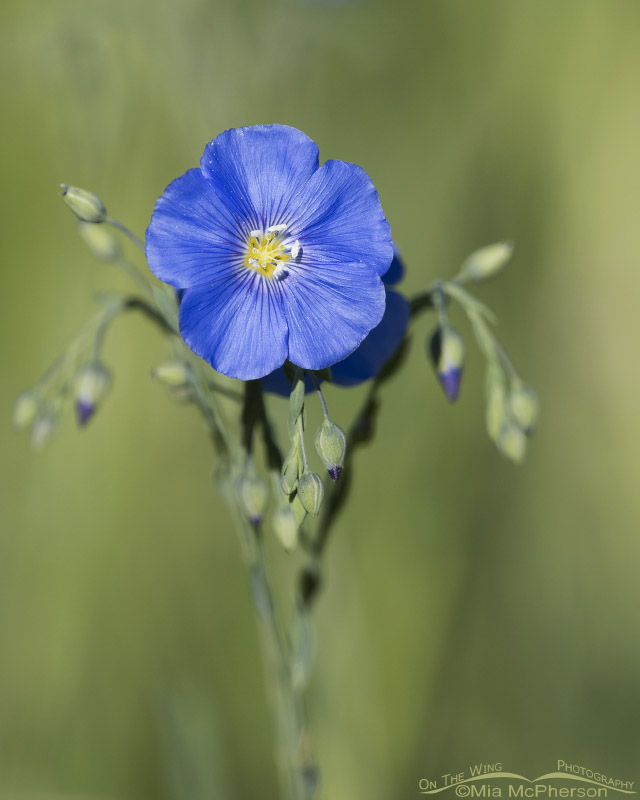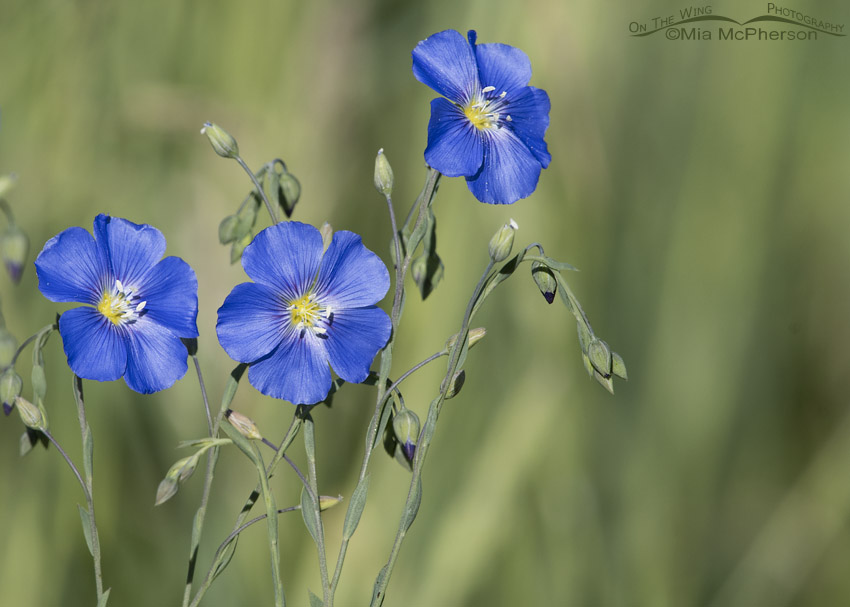 Hoverfly on Lewis’s Flax – Nikon D500, f7.1, 1/1000, ISO 320, Nikkor 500mm VR with 1.4x TC, natural light
Hoverfly on Lewis’s Flax – Nikon D500, f7.1, 1/1000, ISO 320, Nikkor 500mm VR with 1.4x TC, natural light
Spring has almost given way to summer in the Salt Lake Valley but in some areas of the mountains that surround the valley spring is still on going and at the highest elevations it has only just begun. I love that I can escape the heat of the valley simply by going up into the mountains and I also love seeing the wildflowers that bloom up there.
Long before I became a bird photographer one of my passions was photographing flowers whether they were cultivated or wild, some of my first digital images taken with my Sony Mavica were of flowers and flowering shrubs that I grew in my backyard. That seems so very long ago. Now my primary focus is on birds but I still can’t resist photographing wildflowers and if the wildflowers have insects on them that is even better.
One of my favorite wildflowers is Lewis’s Flax, I love how the blossoms move in a breeze because it seems like they are dancing and their blue color is appealing to my eyes.
 Single Lewis’s Flax bloom – Nikon D500, f7.1, 1/1000, ISO 320, Nikkor 500mm VR with 1.4x TC, natural light
Single Lewis’s Flax bloom – Nikon D500, f7.1, 1/1000, ISO 320, Nikkor 500mm VR with 1.4x TC, natural light
So yesterday when I saw some Lewis’s Flax not far from a creek in the Wasatch Mountains I aimed my lens at them and took some photos because they won’t be blooming for very long and because they are so beautiful. Lewis’s Flax is also called Prairie Flax and Wild Blue Flax and the scientific name is Linum lewisii.
 Lewis’s Flax in Morgan County, Utah – Nikon D500, f10, 1/640, ISO 320, Nikkor 500mm VR with 1.4x TC, natural light
Lewis’s Flax in Morgan County, Utah – Nikon D500, f10, 1/640, ISO 320, Nikkor 500mm VR with 1.4x TC, natural light
Lewis’s Flax can be found in roughly 3/4 of North America from Alaska and subarctic Canada south to northern Mexico. The plants are drought tolerant and are beneficial because the flowers attract large numbers of native bees.
I’m always happy to see Lewis’s Flax in bloom dancing in the breeze.
Life is good.
Mia
Click here to see more of my wildflower photos along with shrubs and trees.
I believe the hoverfly in the first photo is a Bird Hoverfly – Eupeodes volucris


Very nice photo.
Ok…jumped to conclusions…not a bee…so dazzled by beauty of flowers, I didn’t check out the “bee” very closely.
Oh, Mia! What a treat it is to see one of your amazing flower portraits! NOBODY does that better!!! I also love blue, so this is a triple treat! The bee in the first is a wonderful bonus….I seldom see bees anymore…scary! My sore soul needed this. Thank you….
What a lovely wildflower.
Very pretty!